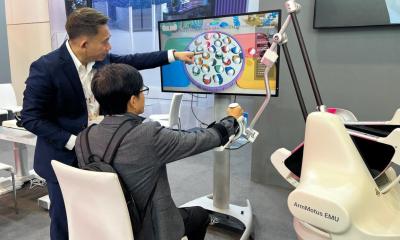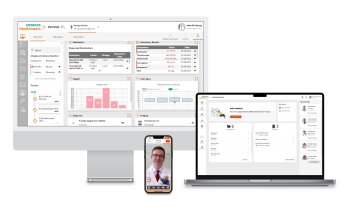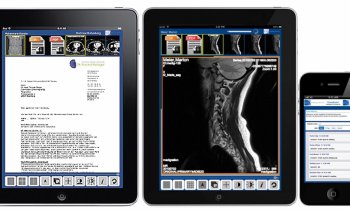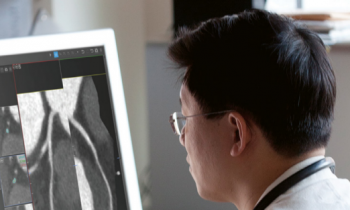Healing with software
Barmer GEK, Germany’s second largest statutory health insurer, is covering the expense of a web-based stimulation therapy developed by Caterna Vision GmbH, a spin-off from the University of Dresden.
Report: Cornelia Wels-Maug

Used by visually impaired children suffering Amblyopia, commonly known as ‘lazy eye’, the app allows young patients to play computer games featuring a striped pattern moving across the screen in the background. If prescribed and monitored by an ophthalmologist, the health insurer will cover the treatment costs – a unique situation in this country and also rare across Europe and beyond.
At European Hospital we know of only two other reimbursable internet-based treatments: All Dutch health insurers cover the costs for Interapy if prescribed by a medical doctor. Developed by the Faculty of Psychology at the University of Amsterdam, Interapy is an online-based solution offering psychological help for Dutch-speaking people living outside the Netherlands.
In the USA, WellDoc’s BlueStar, a solution for managing Type 2 diabetes, has been available as a doctor-prescribed app since January 2014. This advises patients in real-time when to test their blood sugar level and which medication to take in response to the measurements.
Catching up with the 21st century
Launching a prescription-based health app is a major milestone that marks the beginning of the therapeutic software era – with software used like a drug. Coming at a time when the number of mobile health apps is proliferating this signifies that medical treatment has caught up with 21st Century technology as well as consumer habits.
In May 2014, the US publication MobiHealthNews counted ‘more than 35,000 unique, health-related apps available in various app stores’. However, consumers are not the only people using them; doctors increasingly employ health apps within their professional toolkit. MobiHealthNews reckons ‘about 10,000 apps available today are intended for use by medical professionals’ (http://mobihealthnews.com/32972/in-depth-top-200-paid-iphone-apps-for-medical-professionals/).
Apps use in the medical world does not stop there. It is now common practice for European health insurers and health systems to offer health-related apps free on their websites. For instance, Techniker Krankenkasse, the number 1 statutory health insurer in Germany, offers apps that assist members to locate the most appropriate doctor or the nearest insurance office among others.
In addition, England’s National Health Service (NHS) provides a Health App Library, with an extensive selection of apps ranging from Calorie Checker, BMI calculator and tracker, to an interesting Stop Smoking assistant.
The potential of health apps to deliver healthcare in future is significant and many issues still need to be addressed – significantly, for example, how to safeguard data privacy and data security, and how to ensure apps collect data in compatible formats so that patients can transfer data from one app to another.
The topic interests the European Commission keenly. Just a few days after Barmer’s announcement (10 April 2014), the organisation launched ‘a consultation to Ackley gather ideas about how mobile technology could be used to improve health services in Europe’.
Neelie Kroes, Vice-President of the European Commission and EU Commissioner for Digital Agenda is asking for suggestions as to how smartphones, tablets, patient monitors and other wireless equipment, as well as health apps, can be improved. She particularly enquires after the legal requirements for lifestyle and health apps relating to security and performance. These questions need good answers for eHealth to progress.
10.11.2014










